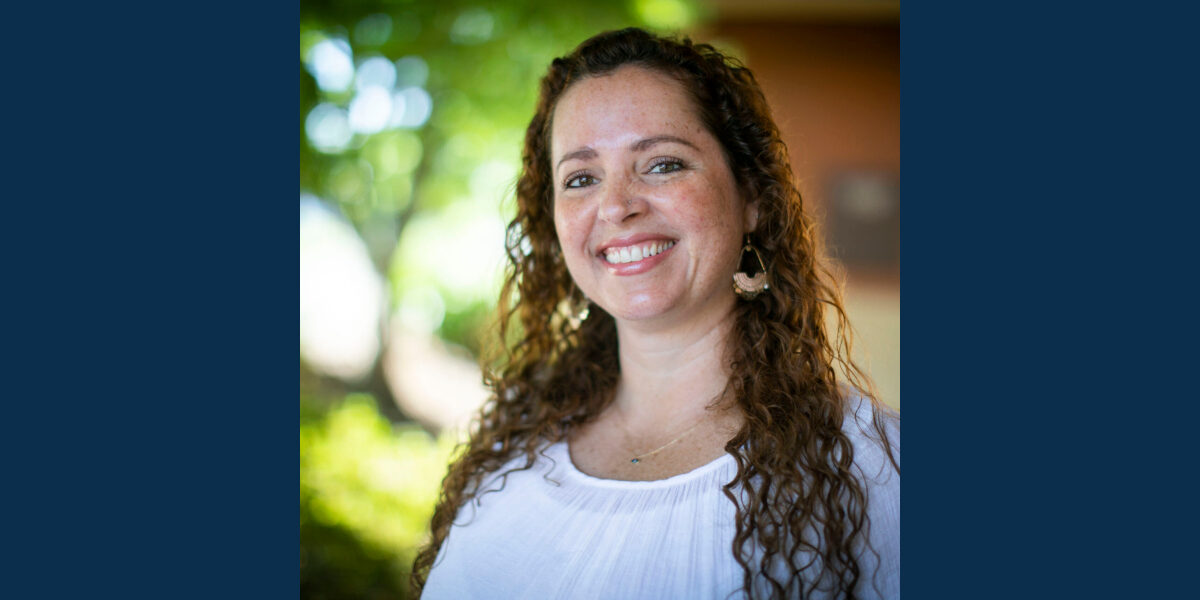

Partner Spotlight: Corazón Healdsburg’s Family Resource Center
3.5 min read. We spoke to Ana Gouveia, who helps to lead the Family Resource Center at Corazón Healdsburg.
Corazón Healdsburg is a multi-service, bilingual and bicultural community-based organization serving residents of Healdsburg, Windsor, Cloverdale, and Geyserville. The individuals and families Corazón supports are 100% low-income, while 95% are Latin American and approximately 75% are monolingual Spanish speakers. A Healthcare Foundation grantee and stalwart community partner, Corazón recently joined the launch of a county-wide two-year pilot GBI (guaranteed basic income) program, Pathway to Income Equity.
In support of Mental Health Awareness Month, we reached out to Ana Gouveia, Team Lead at Corazón’s bilingual Family Resource Center, which last year worked with 551 unique households—or one to two new families every day—providing hands-on support including family-centered case management, family-centered coaching, direct financial assistance, wrap-around services, and referrals to partner agencies.
Originally from Brazil, Ana is a community health worker with over 10 years of experience in nonprofits. We spoke with her to learn more about the work she and her colleagues are doing at the Family Resource Center and the role mental health plays in supporting resilience and furthering wellbeing in the community.
Can you describe how you came to do the work you do?
I work with the Family Resource Center (FRC) here at Corazón. One of my passions is working with clients. I did the clinical training that the Foundation for Embodied Medicine brought to Sonoma County during the 2017 fires. Two hundred individuals got trained here in Sonoma County to provide groups support for dealing with trauma, all the stress. I’m really passionate about that work. I ran several groups in the community with West County Community Services, with the Raizes Collective in Santa Rosa, and then here at Corazón, where I did a few groups with staff. Now with the FRC, of course, I’m bringing a little of that knowledge and those tools to help our clients as well.
“The financial burden on families has brought a lot of anxiety and we’re seeing that in our clients. People come into the office with huge amounts of stress. We sit with them, hear them out, and work with them to make a plan. We help them apply for financial assistance, but also try to address whatever other needs are showing up at that moment. The need for mental health services always comes up.”
Ana Gouveia, Team Lead, Corazón Family Resource Center
What are the typical ways you work with families at the FRC?
This year, we saw a lot of clients after the rains in January. A lot of people were unable to work. Many in our farmworker community come to Corazón. There was a huge need for financial assistance with those families that lost their wages. We provided some financial assistance and, because the County directed further funds to Petaluma People Services Center, we also helped clients apply for help from there.
January through March, when everybody was impacted by the rains, we were all in emergency mode. But as it has calmed down again, we’re able to spend more time with the families in a holistic way, where together we’re looking at different areas of their lives—education is an issue, health, mental health, any other parts of their lives that they want to focus on. And we’re able to work together to develop longer term strategies instead of the short term help during that emergency period.
How has the series of emergencies beginning with the fires of 2017 been impacting the communities you serve?
I’ve been here at Corazón for almost a year now, but in all my previous positions as well I’ve seen a huge increase in mental health impacts. In the first trimester of this year, as I said, there was the extra stress of no wages. The financial burden on families has brought a lot of anxiety and we’re seeing that in our clients. People come into the office with huge amounts of stress. We sit with them, hear them out, and work with them to make a plan. We help them apply for financial assistance, but also try to address whatever other needs are showing up at that moment. The need for mental health services always comes up. We’ve had a few clients that were in crisis, too, so that they ended up going to the hospital.
What is the situation in terms of availability and access to services in Spanish?

We refer a lot of our clients to clinic-based services and many report back saying they got a few sessions online—sometimes they don’t like to be online—or they had five sessions, say, and that was it. But they feel like they need ongoing services. And then there’s just the wait time to get services.
I understand it can be months, even up to a year in some cases.
Yes. Especially when they don’t have health insurance, and many do not have health insurance.
How do you understand the connection between something like a guaranteed basic income and mental health?
Families are really struggling financially. Having that extra boost in their income every month certainly makes a huge difference in their mental health. Rents have skyrocketed. Many families have lost their jobs in the vineyards. We’re working with several families that need new housing, new jobs. But with the prices of the market now, when they try to rent something else—they may have been living in their old place for 15 years—they can’t afford it. And sometimes they don’t have good credit or other things that are needed to rent a place. It’s just barriers and barriers and barriers. So this financial assistance piece through GBI or through other programs really makes a difference in their lives.
Is there anything else you would like to add in the context of Mental Health Awareness Month?
I can’t express enough the need for, and the importance of, mental health services. Not only for adults but for our kids and teens. We have a partnership with Side By Side where they are providing group counseling for adults and, separately, for teenagers. The sessions are held at the Healdsburg Community Center. It makes a huge difference to have the sessions held in a familiar spot right here in town versus having to drive or find transportation to Santa Rosa. Side By Side has also been sharing their materials from their sessions, which our FRC team has been using with the individuals and families they work with who are not actively participating in the Side By Side sessions.*
*The following is excerpted from Corazón’s program materials:
For the Latin American community, mental health and mental illness are often stigmatized topics resulting in prolonged suffering in silence. This silence compounds the range of experiences that may lead to mental health conditions including immigration, acculturation, trauma, and generational trauma. Additionally, the Latin American community faces unique institutional and systemic barriers that may impede access to mental health services, resulting in a lack of seeking resources. For example, this can be not having access to insurance, to bilingual and bicultural therapists, violent experiences with other mental health practitioners, language barriers, etc. This program will address the lack of access to mental health, beginning with Family Counseling Sessions given in Spanish and practitioners who are bicultural.

Related News + Stories
Invest in Our Community
Your support is vital to our collective vision of eliminating health inequities in northern Sonoma County.
Donate



